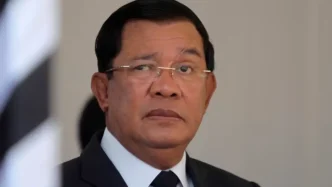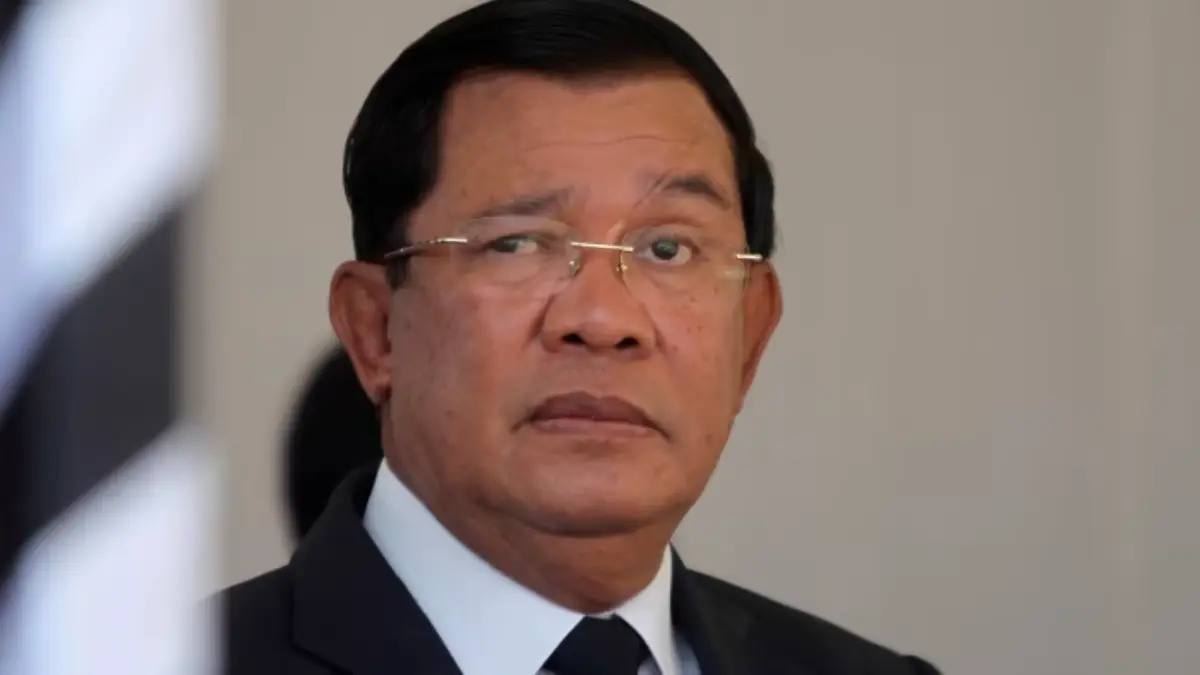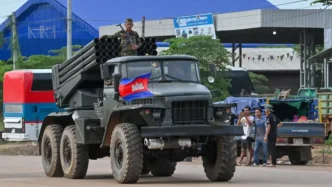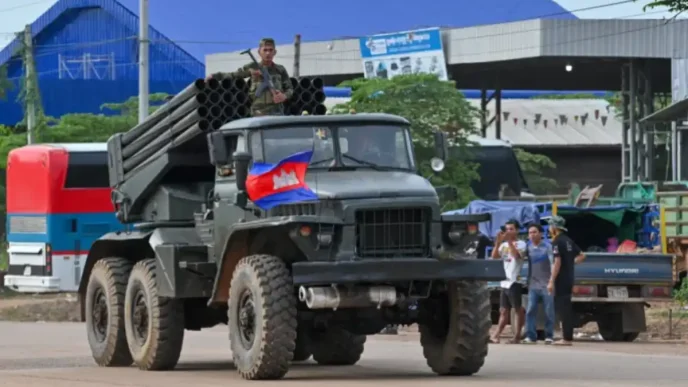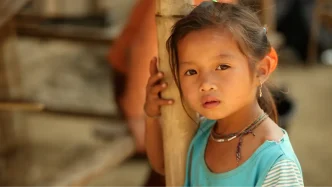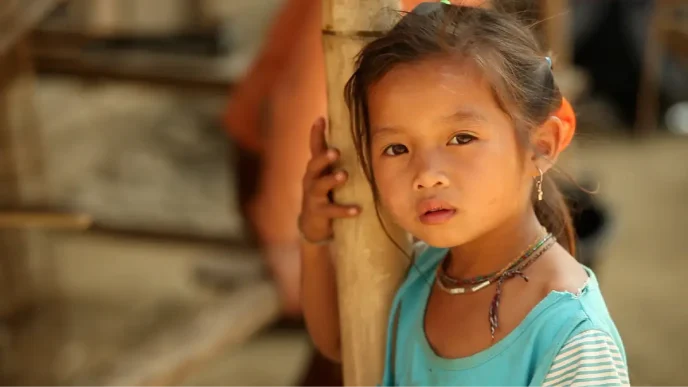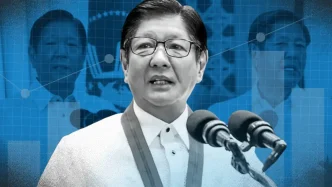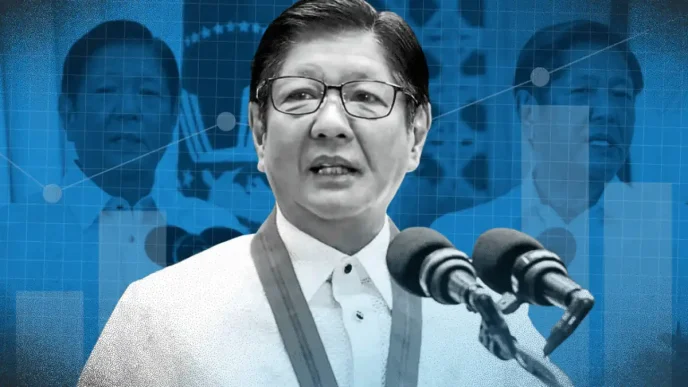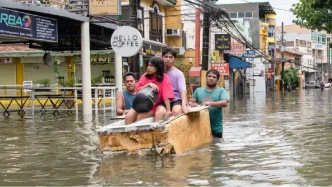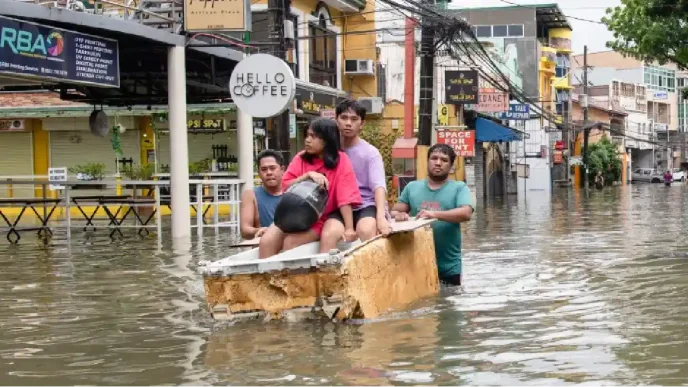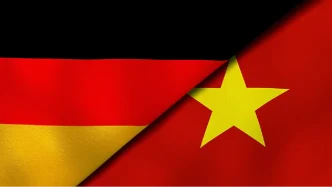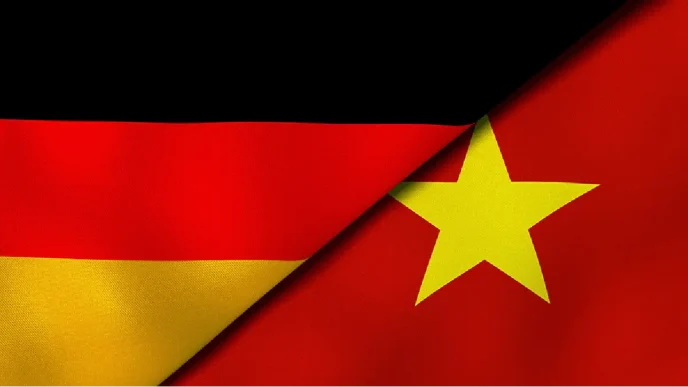After nearly four decades in power, Hun Sen stepped down as Cambodia’s Prime Minister in August 2023, leaving behind a nation transformed yet deeply scarred by his iron-fisted rule. Rising from a junior Khmer Rouge officer to the architect of modern Cambodia, Hun Sen’s tenure brought stability and economic growth to a country ravaged by genocide and war. However, his legacy is overshadowed by accusations of authoritarianism, systemic corruption, and human rights abuses that continue to haunt the nation’s fragile democracy. As his son, Hun Manet, takes the reins, questions linger over whether Cambodia can break free from the shadow of dynastic control and repression.
A Journey from Khmer Rouge to Power
Hun Sen’s early life was shaped by the violent upheavals of Cambodia’s history. Born on August 5, 1952, in Kampong Cham province, he joined the Khmer Rouge in 1970 at the age of 17, motivated by Prince Norodom Sihanouk’s call to resist the US-backed Lon Nol government. By 1975, as the Khmer Rouge seized Phnom Penh and unleashed a genocidal regime that claimed up to 2 million lives through starvation, forced labor, and executions, Hun Sen had risen to deputy regimental commander in the Eastern Zone. His role in brutal campaigns during this period remains a point of contention among historians and survivors alike.
The turning point came in 1977, when Pol Pot’s paranoia triggered deadly purges within the Khmer Rouge ranks. Facing execution and having lost his left eye in battle, Hun Sen fled to Vietnam at the age of 24. There, he joined other defectors to form the Kampuchean United Front for National Salvation, a group supported by Vietnamese forces with the goal of toppling Pol Pot. When Vietnam invaded Cambodia on December 25, 1978, capturing Phnom Penh just weeks later on January 7, 1979, Hun Sen’s defection proved pivotal. At 26, he was appointed Foreign Minister of the Vietnamese-installed People’s Republic of Kampuchea (PRK), marking the start of his ascent to power.
Under the PRK, led by Heng Samrin as head of state, Hun Sen became Prime Minister in 1985 at the remarkably young age of 32. While Samrin’s role was largely ceremonial, Hun Sen wielded significant influence, focusing on stabilizing a country devastated by genocide and ongoing civil war with Khmer Rouge insurgents. With Vietnam’s military backing, his government worked to rebuild infrastructure, restore schools, and revive agriculture in the face of economic collapse and international isolation. Western nations and China, still recognizing the Khmer Rouge at the United Nations until 1990, shunned the PRK, leaving Hun Sen to navigate a hostile global landscape.
Yet, this period was not without controversy. The K5 Plan, a 1980s initiative to curb Khmer Rouge guerrilla activity through barricades and landmines along the Thai border, relied on forced civilian labor and resulted in thousands of deaths from malaria and explosions. Human rights organizations have long criticized the plan as a grave violation, tying Hun Sen to its implementation despite his claims of Vietnamese oversight. These early actions hinted at the ruthless pragmatism that would define his leadership.
Transition and the Undermining of Democracy
The 1991 Paris Peace Agreements ushered in a new era, ending Vietnam’s occupation and establishing the United Nations Transitional Authority in Cambodia (UNTAC) to oversee democratic elections. In 1993, Cambodia transitioned to a constitutional monarchy with the reinstatement of King Norodom Sihanouk. That year’s elections saw the royalist FUNCINPEC party, led by Prince Norodom Ranariddh, defeat Hun Sen’s Cambodian People’s Party (CPP). Unwilling to cede control, Hun Sen maneuvered into a co-Prime Minister role alongside Ranariddh, creating an uneasy coalition that foreshadowed his refusal to relinquish power.
The tension boiled over in July 1997, when Hun Sen orchestrated a violent coup against Ranariddh, with street battles in Phnom Penh leaving dozens dead. This event, widely condemned as a derailment of Cambodia’s nascent democracy, delayed the country’s entry into the Association of Southeast Asian Nations (ASEAN) until 1999. It also cemented Hun Sen’s dominance, as he tightened his grip over state institutions and security forces, sidelining any meaningful opposition.
Economic Gains Amid Systemic Failures
Under Hun Sen’s rule, Cambodia saw significant economic progress. The nation’s GDP grew from $2.5 billion in 1993 to $31.8 billion by 2022, driven by foreign investment, particularly from China, and rapid urbanization. A burgeoning Khmer middle class emerged, and infrastructure projects transformed cities like Phnom Penh and Siem Reap. However, these gains were marred by systemic corruption and inequality. Land grabs, often linked to CPP elites and agribusiness firms, displaced thousands of rural Cambodians, frequently through violent means. Reports of environmental degradation, including a 24% loss of forest cover between 2001 and 2018 due to illegal logging, further tarnished Hun Sen’s record.
One of the most contentious projects tied to his administration is the Funan Techo Canal, a China-backed initiative launched in 2024. Critics warn of severe environmental damage and potential regional tensions, particularly with neighboring Vietnam, over water resource management. Such projects highlight the trade-offs of Hun Sen’s development agenda, where economic growth often came at the expense of sustainability and public welfare.
Repression and a Dynastic Handover
Hun Sen’s 38-year tenure was defined by relentless political repression. A notable incident occurred on March 30, 1997, when a grenade attack on an opposition rally led by Sam Rainsy killed 16 people and injured over 150. Investigations pointed to involvement by Hun Sen’s bodyguard unit, yet no one was held accountable, earning the date the grim moniker of “Impunity Day” among activists. Two decades later, in 2017, Hun Sen dissolved the Cambodia National Rescue Party (CNRP), which had gained significant traction, and arrested its leader, Kem Sokha, on charges of treason. Independent media outlets faced closures, and internet censorship intensified, contributing to Cambodia’s “Not Free” rating by Freedom House in 2023.
Perhaps the most telling sign of Hun Sen’s authoritarian grip was his orchestration of a dynastic succession. In 2023, he handed power to his son, Hun Manet, following elections widely criticized as unfree. The disqualification of opposition groups like the Candlelight Party ensured the CPP’s sweep of all 125 National Assembly seats, drawing comparisons to one-party states. Even as Senate President, Hun Sen retains significant influence, raising doubts about whether Hun Manet will forge an independent path or simply perpetuate his father’s model of control.
International Ties and Regional Tensions
Hun Sen’s deepening alignment with China, evidenced by billions in investments and a controversial naval base deal, has sparked concerns over Cambodia’s sovereignty. This relationship, while economically beneficial, has drawn scrutiny from Western nations and regional neighbors wary of Beijing’s growing influence in Southeast Asia. Additionally, Cambodia’s foreign policy under Hun Sen often strained relations with Thailand and Vietnam, particularly over border disputes and infrastructure projects like the Funan Techo Canal.
Public sentiment reflects a nation divided. While some Cambodians credit Hun Sen with bringing peace after decades of conflict, others view him as the architect of a repressive system that prioritizes elite interests over democratic ideals. The frustration is palpable in online discussions, though specific social media content requires further verification to ensure accuracy and relevance to current discourse.
A Legacy of Contradictions
Hun Sen’s nearly four-decade rule leaves Cambodia at a crossroads. His contributions to stability and economic growth are undeniable, pulling the nation from the ashes of the Khmer Rouge era into a period of relative peace. Yet, the cost of this stability—democratic erosion, human rights violations, and entrenched corruption—casts a long shadow. As Hun Manet steps into leadership, the international community and Cambodian citizens alike watch closely to see if he can address these systemic issues or if the country will remain tethered to an authoritarian legacy. The path forward remains uncertain, with Cambodia’s democratic aspirations hanging in the balance.

